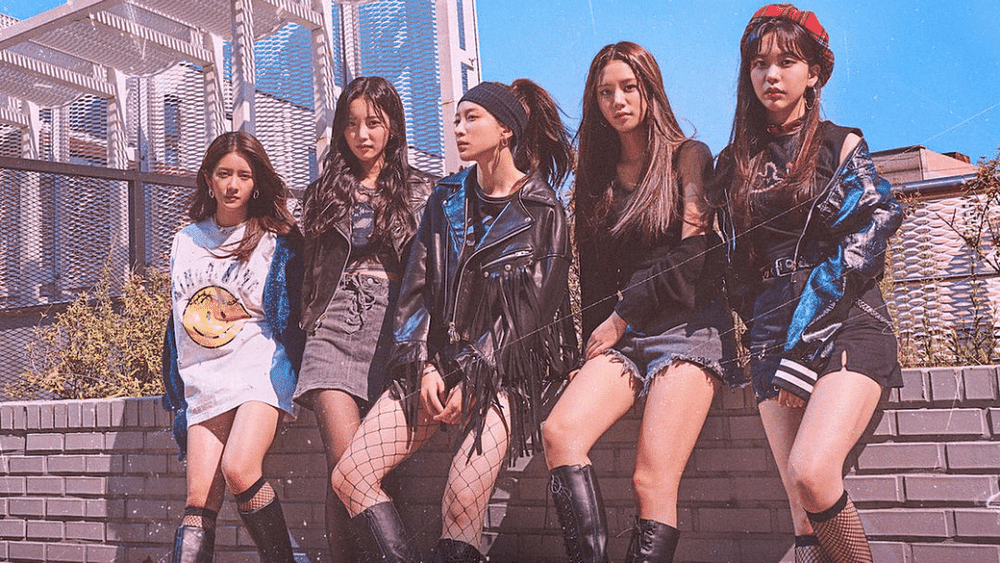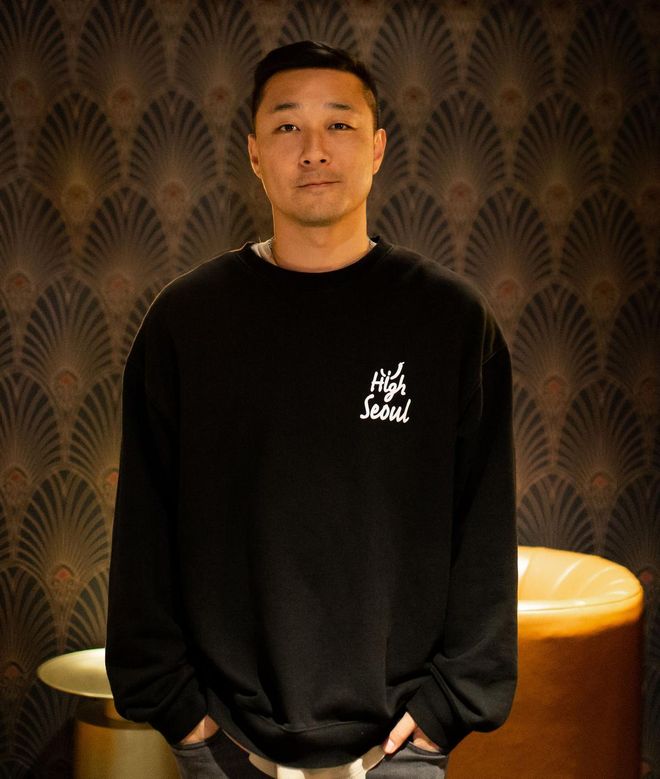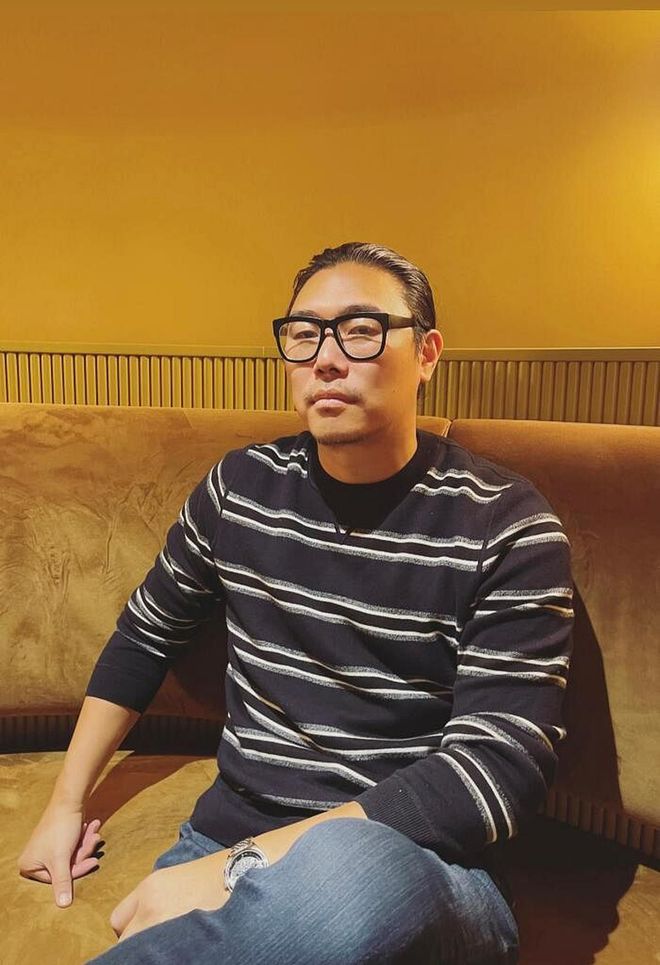Transparent Arts’ Daniel Park And Director Charles Chu On Korean Drama ‘Idol: The Coup’
The series explores the pitfalls of K-pop stardom, and what it’s really like when a girl group fails to reach idol status.

South Korea is a cultural juggernaut. Just look at BTS and Blackpink, who dominate and steer popular culture globally. Elsewhere, actors such as Wi Ha-jun (who played the dashing policeman with an unyielding determination to find his brother in Netflix’s Squid Game) and Lee Jung-jae (who played the charismatic protagonist in the same series) were catapulted into international stardom seemingly overnight.
Celebrities aside, even commodities such as bags and accessories worn by South Korean actresses, whether in films and television series or in their everyday lives, have also reached cult status, prompting fans to trawl the internet and the brands' stores to get their hands on one. For instance: The Fendi, Givenchy and Bottega Veneta bags seen on Jeon Yeon-been (who starred alongside Song Joong-ki on the hit Netflix television show Vincenzo) swiftly garnered global attention, birthing countless shopping stories in magazines.
Related article: South Korean DJ And Producer Raiden On Collaborating With BIG Naughty And EXY
The power that these stars hold is undeniable—especially when the appetite for South Korean entertainment is ever-expanding. While everything may seem rosy because everyone gets what they want—fame, fortune and amusement—that’s not always the case. Looks are notoriously deceiving. Beneath the designer clothes, multi-million dollar endorsement deals and stardom is someone who spent numerous hours training under the strictest conditions, all for a shot at stardom. The sad truth? Not everyone gets what they want.
An Obscure Reality

Daniel Park, co-founder and CCO Asian-American talent firm Transparent Arts. Producer of 'Idol: The Coup'. Photo: Courtesy
Transparent Arts’ Daniel Park And Director Charles Chu On Korean Drama ‘Idol: The Coup’
The behind-the-scene hard work, determination as well as mental, emotional and physical stress that K-pop idol trainees go through are exactly what South Korean drama Idol: The Coup is all about. The series is produced by Daniel Park, co-founder and CCO Asian-American talent firm Transparent Arts. Together with writer-director Charles Chu, Park wanted to tell the lesser-known story of a failed, fictional K-pop girl group called Cotton Candy in comparison to another act, Mars, who managed to achieve global success.
Park and Chu also wanted to shed light on what goes on at artist management labels when dreams don’t come true, and how these aspiring K-pop idols have to find the strength to move on. The series also underlines an important message of mental health issues. Although this phenomena isn't actually news to many who've followed the Hallyu culture for years, this story has never been told like this before.
Related article: Actor Park Seo-Joon Leaves South Korea To Film A Marvel Movie

Charles Chu, writer-director of 'Idol: The Coup'. Photo: Courtesy
Transparent Arts’ Daniel Park And Director Charles Chu On Korean Drama ‘Idol: The Coup’
The cast includes: Hani (Exid), Exy (WJSN), Solbin (Laboum), Kim Jiwon (RedSquare), and Han So-eun as Cotton Candy members; as well as other actors such as Jung Woong-in, Kwak Si-yang and Kim Min-kyu.
Ahead, Daniel Park and Charles Chu speak to BAZAAR on the importance of the television series, the issues they wanted to highlight, what we can expect from it and more.
Art Imitates Life
Tell us more about the series, and why it was important to you to tell it in this format.
Daniel Park: The premise is about a failed K-pop girl group. We wanted to produce a series that highlights the realistic struggles of dreamers — which was important to us — and to tell the story of what happens when dreams can’t be achieved.
Charles Chu: It was important to me to first and foremost tell a human story; and not just a K-pop story. So when Daniel came to me with this project, I felt that it needed to have that human element at the core of it. And it did.
What was the casting process like?
Charles: The casting process for this project was extensive and emotional. Many of the girls who tried out for the roles had been through similar experiences; and many of them broke down during their auditions. Almost all of the cast members from the fictitious Mars and Cotton Candy girl groups are former idols. Especially Hani — she deeply connected to the material as she felt that it was almost autobiographical.
Daniel: We wanted to find a good combination of technical pop music ability and acting. Also, the five girls had to have good chemistry. Out of the hundreds of people we auditioned, we ended up with the right group.
Related article: Kevin Woo Of U-KISS Has Conquered K-Pop, And Now He’s Off To Hollywood
What are some of the lesser-known issues of K-pop idol trainees that you wanted to highlight in this series?
Charles: When people think of K-pop, they think of the glamour, fashion, choreography and financial success. They don’t see the mental trauma, stress, failed acts, and the dark side of show business. We wanted to highlight that side of the industry, and give hope to anyone going through a life change. Also, to show that there is more to life than just one path.
Daniel: We cover topics that might have been in the press before — from the hardcore training to the issues with their [talent] companies. One area that we honed in on that hasn’t been given much attention to is what girls in particular have to go through in the K-pop industry. We touch upon elements of sexism as well as exploitation of women who are pressured to meet and drink with executives, and expected to just do as they're told.
Tell us more about the fictional K-pop idol groups Cotton Candy and Mars.
Daniel: There's Mars and Cotton Candy, both signed to the same talent company. Mars is wildly successful, while Cotton Candy never quite achieved they recognition they wanted. Throughout the series, viewers will see how both groups come to terms with success and failure.
Related article: This Is Exactly What K-Pop Star Jackson Wang Eats In A Day
Related article: How Well Do You Know South Korean Heartthrob Lee Min-ho?
What about this project is different from your previous endeavours, and what made you decide to take this on?
Daniel: This is different because it’s a scripted narrative that also deeply intertwines with music. Also, this is my first Korean drama. I wanted to take on this project because I like to work on stories that I know. Having worked with the international music business for so long, I thought this was a fascinating topic. It was important for it to be in a television series format because we have several characters that needed time for their arcs to develop.
Charles: I had never worked in television before, and have never done a project that centred around women and female power. That instantly attracted me to this project.
Of Parallels And Polarities
Related article: 6 Times Rain Showed Us He’s Here To Stay (And Slay)
What similarities and differences can viewers draw from the show as compared to Hollywood?
Charles: In comparison to Hollywood, I think the press operates somewhat similarly. The paparazzi as well. The intensity of the fans is a little different. K-pop fans protect their favourite idols as they would their own family. They are unique in contrast to any other industry. Their loyalty is unmatched.
Daniel: In the end, the hopelessness of dashed dreams is universal. I do think a major difference is that in Hollywood we tend to be very independent. Artists out here will try to be the force they think is necessary to achieve their musical ambitions. The K-pop industry feels more like a corporate ladder that you have to climb in order to achieve success.
What are your thoughts and hopes for Asian representation in Hollywood?
Daniel: After so long, I think that things are beginning to turn around. I hope for a day soon when this is an odd question—Asians in the media should be normalised. And I’m starting to see how it’s beginning to feel like that more and more.
Charles: I know there was a time not too long ago where a lot of Asians in entertainment could not help feeling jaded by the lack of representation in the industry. I think those times are dissipating, and quickly. Which is exciting. I see an influx of new shows with more and more new Asian actors. The new generation is going to have plenty of Asian role models in their childhood, and that truly brings joy to my heart because growing up in the ’90s, I didn’t have too many. We’re developing a new show about the LA Riots from the Korean perspective centred around an immigrant family.
Idol: The Coup is currently available for streaming on iQiyi.
*This interview has been edited and condensed for clarity.